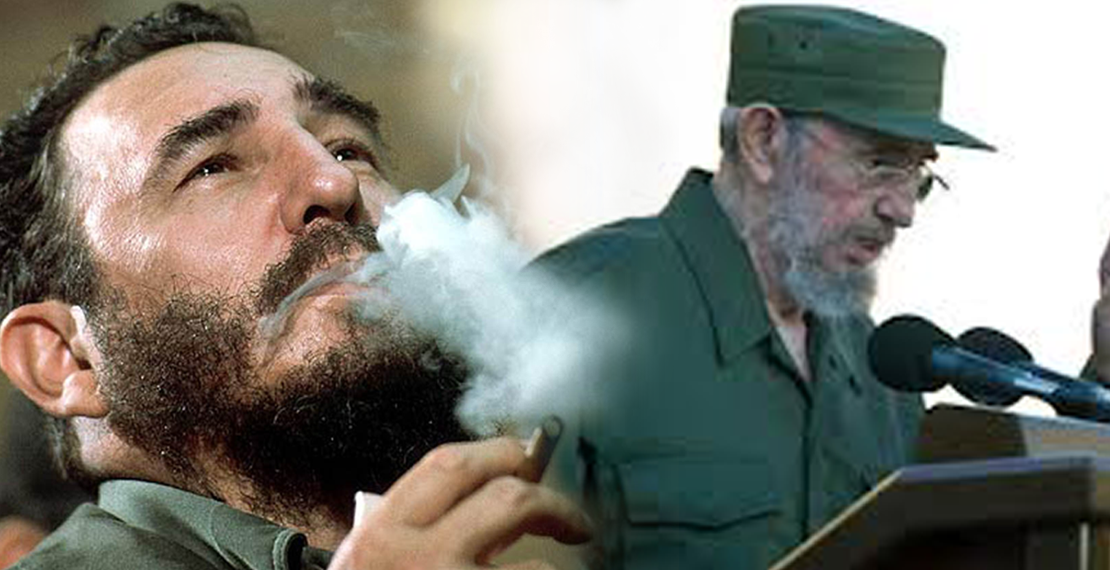Fidel Castro

Fidel Alejandro Castro Ruz (American Spanish: [fiˈðel aleˈxandɾo ˈkastɾo ˈrus] ![]() audio (help·info); born August 13, 1926), more commonly known as Fidel Castro, is a Cuban politician and revolutionary who served as Prime Minister of the Republic of Cuba from 1959 to 1976 and then President from 1976 to 2008. Politically a Marxist–Leninist and Cuban nationalist, he also served as the First Secretary of the Communist Party of Cuba from 1961 until 2011. Under his administration Cuba became a one-party socialist state; industry and business were nationalized, and state socialist reforms were implemented throughout society. Internationally, Castro was the Secretary-General of the Non-Aligned Movement from 1979 to 1983 and from 2006 to 2008.
audio (help·info); born August 13, 1926), more commonly known as Fidel Castro, is a Cuban politician and revolutionary who served as Prime Minister of the Republic of Cuba from 1959 to 1976 and then President from 1976 to 2008. Politically a Marxist–Leninist and Cuban nationalist, he also served as the First Secretary of the Communist Party of Cuba from 1961 until 2011. Under his administration Cuba became a one-party socialist state; industry and business were nationalized, and state socialist reforms were implemented throughout society. Internationally, Castro was the Secretary-General of the Non-Aligned Movement from 1979 to 1983 and from 2006 to 2008.
Born in Birán as the son of a wealthy farmer, Castro adopted leftist anti-imperialist politics while studying law at theUniversity of Havana. After participating in rebellions against right-wing governments in the Dominican Republic and Colombia, he planned the overthrow of Cuban President Fulgencio Batista, launching a failed attack on the Moncada Barracks in 1953. After a year’s imprisonment, he traveled to Mexico where he formed a revolutionary group, the 26th of July Movement, with Che Guevara and his brother Raúl Castro. Returning to Cuba, Castro took a key role in the Cuban Revolution by leading the Movement in a guerrilla war against Batista’s forces from the Sierra Maestra. After Batista’s overthrow in 1959, Castro assumed military and political power. The United States was alarmed by Castro’s friendly relations with the Soviet Union, and unsuccessfully attempted to remove him by assassination, economic blockade, and counter-revolution, including the Bay of Pigs invasion of 1961. Countering these threats, Castro formed an alliance with the Soviets and allowed them to place nuclear weapons on the island, sparking the Cuban Missile Crisis – a defining incident of the Cold War – in 1962.
Adopting a Marxist-Leninist model of development, Castro converted Cuba into a one-party socialist state under Communist Party rule; the first in the Western hemisphere. Reforms introducing central economic planning and expanding healthcareand education were accompanied by state control of the press and the suppression of internal dissent. Abroad, Castro supported anti-imperialist revolutionary groups, backing the establishment of Marxist governments in Chile, Nicaragua, and Grenada, and sending troops to aid allies in the Yom Kippur War, Ethio-Somali War, and Angolan Civil War. These actions, coupled with Castro’s leadership of the Non-Aligned Movement and Cuba’s medical internationalism, increased Cuba’s profile on the world stage and earned its leader great respect in the developing world. Following the Soviet Union’s dissolution in 1991, Castro led Cuba into its “Special Period” and embraced environmentalist and anti-globalization ideas. In the 2000s he forged alliances in the Latin American Pink Tide – namely with Hugo Chávez‘s Venezuela – and signed Cuba to the Bolivarian Alliance for the Americas. In 2006 he transferred his responsibilities to Vice-President Raúl Castro, who formally assumed the presidency in 2008.
Castro is a controversial and divisive world figure. He is decorated with various international awards, and his supporters laud him as a champion of socialism, anti-imperialism, and humanitarianism, whose revolutionary regime secured Cuba’s independence from American imperialism. Conversely, critics view him as a totalitarian dictator whose administration oversaw multiple human-rights abuses, an exodus of more than one million Cubans, and the impoverishment of the country’s economy. Through his actions and his writings he has significantly influenced the politics of various individuals and groups across the world.
Resource: Wikipedia

